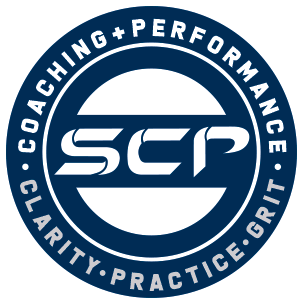Nurturing team resilience
Persevering as a team demands honest communication on the way to effective collaboration. Transforming your workgroup into a high-performing team doesn't simply happen. Even when you deliberately practice being a team, narrowing the gap between knowing what it takes to be a high-performing team and doing it, you're likely to encounter obstacles or challenges. How do you go about meeting resolution to win as a team, consistently over time?
One of the common challenges that teams experience is the dead weight teammate. More than missing meetings or practices and not meeting their deadlines, the contribution of the dead weight teammate simply doesn't match the rest of the group's effort. Oftentimes, the individual performance or lack of performance goes unaddressed and other team members step in to cover and pick up the slack. In weak cultures or unhealthy environments, nobody wants to rock the boat. Influenced also by the perception that good teams run smoothly and efficiently without conflict or issues, feedback is not shared; potential conflict avoided. Team members take on additional responsibility or load, and resentment builds. Team performance suffers.
In a healthy team environment, the culture embraces and supports respectful dissent. With clear purpose, goals, responsibilities and standards, the team will share the feedback with a team member not pulling their weight. The observable behaviour will be noted along with the subsequent impact and collectively, teammates will find agreement on best resolution for the team.
At SCP, team performance coaches help to facilitate these conversations, holding teams accountable to their agreed to values while empowering them to practice resolution that nurtures their resilience. Team performance coaches working with Reach Alliance research teams build feedback into the routine of the team. Researchers practice giving and receiving feedback through meeting debriefs and regular facilitated peer review sessions. During these consistent opportunities to practice feedback and build consensus, coaches and teams operate with the belief that everyone on the team is trying their best. If a team member is not meeting expectations, it's understood that the reason must be one of two things:
the individual doesn’t have a clear picture of what success looks like and how to get there, or
the individual has this picture, but doesn’t yet have the competence to execute
Effective feedback helps to resolve both by adding more colour and clarity to the picture and or offering solutions on how to level up competence or execution to meet the team expectations.
A team performance coach can help the team navigate these conversations with intention, purpose and respect so that the team moves forward in a positive way, with renewed clarity, perspective and mutual agreement. In some instances, the optimal team resolution may mean a breakup and a performance coach can help the remaining team members regroup and move forward with refreshed clarity and focus.
How do you and your team address challenges and obstacles?
What’s your agreed path to finding resolution?
How are you nurturing resilience together?
“Talent wins games, teamwork wins championships”
